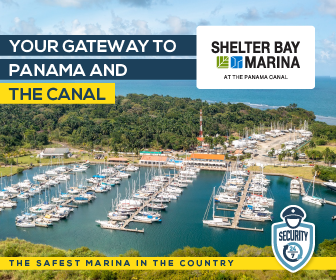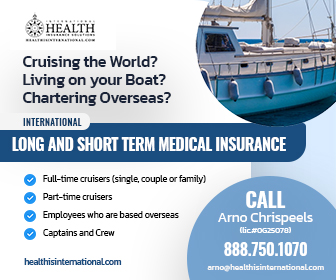USA, North Carolina: Boats Sunk by Hurricane Florence Were Raised—and then Sunk Again
As reported by Trade Only Today, questions are being asked about the state’s emergency management plan when it was learned boats are being raised, stripped of hazardous materials and then sunk again.
Published 6 years ago, updated 5 years ago
As reported by Trade Only Today
Boats in North Carolina that sank after being pummeled by Hurricane Florence were raised by salvage companies—and then sunk again. A committee of the North Carolina state legislature last week heard how “tens upon tens upon tens” of boats abandoned after Florence were raised from coastal waters, stripped of any hazardous materials and then sunk again.
WRAI.com reported that state legislators were astonished to hear about this procedure after reading a report. “Crazy,” said Rep. Pat McElraft, R-Carteret.
“There’s got to be a better way,” New Bern spokeswoman Colleen Roberts told the news station. “After the storm, and even now, you can ride over the bridges in New Bern and see the tall masts of sailboats and other boating equipment in the rivers.”
Mike Sprayberry, the state’s emergency management director, formed a task force right after the hurricane to develop an action plan to handle sunken vessels. It was made up of the U.S. Coast Guard, North Carolina Wildlife Resources Commission and Department of Environmental Quality. The group decided to use a process called ESF 10, which focuses on cleaning up the boats, as opposed to ESF 3, which involves a more detailed salvage operation.
“The coordinated response saw that no state entity could take responsibility for disposal, so ESF 10 made sense as the function for abandoned vessels due to the limited jurisdiction of coordinating agencies and limited resources of localities,” DEQ spokeswoman Megan Thorpe said in an email to the station. “The focus was to eliminate environmental hazards.”
The legislature heard that the state government has no place to put abandoned vessels or the funding to scrap them. State agencies say local governments should retain authority over the vessels. Local governments said that they don’t have authority over public waterways. They said that is a state and federal issue.
State legislators read in the report how a number of boat owners decided to abandon their boats after the storm sank them in New Bern and other coastal areas. The committee was told that an “untold number of boats” are in the water and on land.
Fiberglass hulls will eventually “delaminate” and split into smaller pieces, said Christian Gillikin of the Atlantic Coast Marine Group. Gillikin’s company was hired by state and federal agencies to deal with the abandoned boats after Florence.
The immediate goal after the hurricane was to remove any hazardous materials on the sunken boats—diesel fuel, oil, flares—before they could pollute local waters. Gillikin could not say how many boats his company raised and cleaned, and then sank again. He estimated that involved “tens and tens and tens” out of the 383 abandoned vessels identified after Florence.
It costs about $395 a foot to remove a boat, said Gillikin, so a 32-foot vessel would cost $12,640. The most expensive part is raising the vessel. He recommended that the committee earmark $50,000 to assess how many vessels are left and then form a plan of action.
Sprayberry said the state didn’t have the funding or the authority to simply haul damaged boats away following the hurricane.
“One of the things that I have to keep in mind … they’re private property, and they’re like cars,” Sprayberry said. “I wouldn’t take cars and pay a fee to store them somewhere, and then pay more to tear them apart and put them in a landfill.”
Roberts told the station that officials in New Bern are talking about ways to go after the abandoned boat owners. But she also added there’s “a little bit of head-scratching right now.”
The state legislators are considering new rules that would force owners to take more responsibility. A proposal to require liability insurance to cover at least some of the recovery costs was discussed and will be debated later.
Related to following destinations: USA
Related to the following Cruising Resources: Environment





